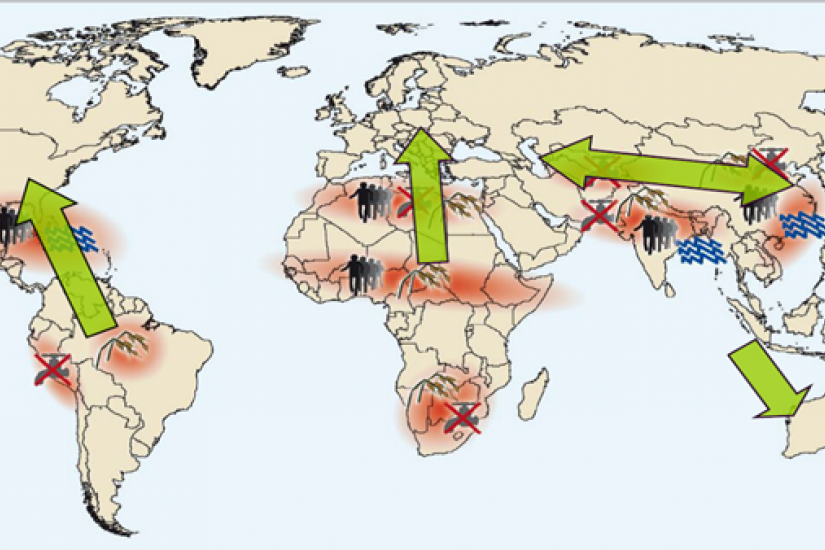
Lecture by
Dr. Irina Molodikova
Post-Soviet Migration Project, Department of Environmental Sciences and Policy, CEU
Chair: Professor Ruben Mnatsakanian
Department of Environmental Sciences and Policy, CEU
The issue of climate change induced discussions about forced migrations during the last decade, it is now one of the prominent topics of discussions among scholars, politicians, international organizations and national governments. Through human history climate change was an important factor that determined nomadic behavior in different parts of the world. Nowadays, the established border controls and international norms put a lot of constrains on natural population movements. The last refugee crisis in Europe in 2015 put the issue of interrelations between refugees and climate change into the agenda of Paris Summit in 2015. It was also a discussion topic during the UN General Assembly of the Global Compact for Safe, Orderly and Regular Migration of the Intergovernmental conference in New York in December 2018. It was admitted that the factors such as drought, famine, earthquakes, and water shortages can lead to an exodus of refugees.
Migration is a complex and multifaceted phenomenon that ranges from voluntary to forced migration. These two phenomena have different drivers and impacts, calling – at least partly – for different responses. In between are situations where choice and coercion contribute to different degrees to people’s decision to move (FAO).
The recent research undertaken by International Organization for Migration, FAO and other international organizations as well as academics supports the vision of so-called “ecological refugees” as mostly the consequence of the national government’s inability to deal with socio-economic and ecological problems. There is some evidence that the refugee crisis in Syria is linked with multi-year drought in 2007-2010 that provoked migration from rural areas to cities and created a critical mass of rural poor before the political crisis that started in 2011. Nevertheless, the other opinions exist as well.